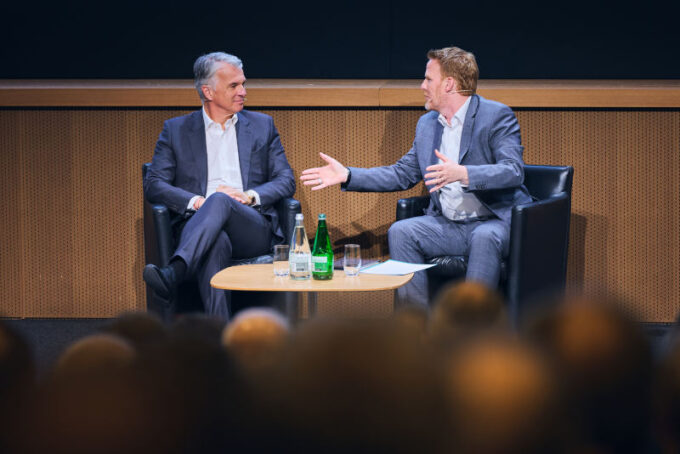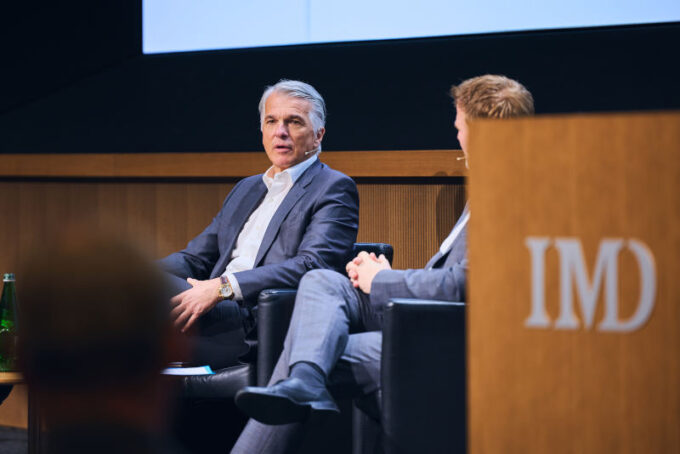The collapse of Credit Suisse in March 2023 was a crisis that had been years in the making, driven by the bank’s failures and partly enabled by exceptions and regulatory leniency, said UBS CEO Sergio Ermotti. As discussions about stricter capital requirements gain momentum in Switzerland, he said the question politicians and regulators should be asking is: why wasn’t the existing regulation fully enforced?
“Why was Credit Suisse allowed to go on for so long in such a precarious condition without any intervention? That’s the question. The markets flagged it already in 2019 and 2020. Even if you forget about the stock price, there’s still the funding level, profitability, and reputation. Things were going badly for years,” he said.
Just as we don’t rewrite laws every time a crime is committed, we shouldn’t rush to impose new financial rules before understanding what went wrong, Ermotti added.
“This is a classical case in which, of course, we may need to reshape some elements of our regime in terms of quality, but we definitely don’t believe that quantity is an issue,” he said, noting that UBS already meets the highest minimum capital requirements in the world.
More regulation means higher costs for banking services, including credit – costs that ultimately impact businesses and consumers alike and shouldn’t be overlooked. While the collapse of Credit Suisse was a tragedy, Ermotti said we should not allow a “culture of fear” to dominate the debate.

Audio available







